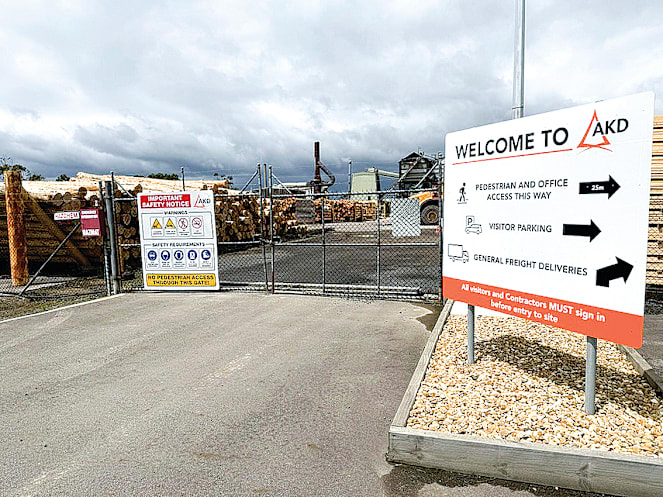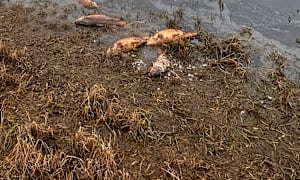A COMPLETELY unforeseen announcement came without warning on Tuesday, November 20, and left both Yarram and the surrounding community stunned.
Associated Kiln Driers (AKD) announced that its Yarram sawmill would be closing immediately, leaving 73 people suddenly out of work, 38 days out from Christmas. In a small town with an even smaller job market, this news landed heavily.
AKD explained the decision in a statement. The company said the national slowdown in housing construction has pushed demand down across the sector. Meanwhile, operating costs have continued to climb. After an internal review, the business decided the Yarram operation can no longer continue.
The mill specialised in lower grade plantation pine used for pallet and packaging manufacture as well as landscaping products. That work will still continue at AKD’s larger sites in Colac, Caboolture, Tumut and Oberon.
“This has been an extremely difficult decision to arrive at, but a necessary one to take when we consider all the external factors at play and prioritise what’s best for AKD’s long-term future,” said AKD CEO, Shane Vicary.
He said staff would be offered support through an employee assistance program and talked about redeployment options elsewhere, but also acknowledged the impact this closure would have on the community.
“Having operated in regional communities for 70 years, the significance of our departure from Yarram is not lost on us. We understand how important our operations have been to the fabric of this region and we are committed to working with local stakeholders in Gippsland to reduce the impact of the closure where reasonably possible,” he said.
Member for Gippsland South, Danny O’Brien, called the closure a “devastating blow.”
“Seventy-three jobs lost in a town the size of Yarram is enormous,” he said.
“These are local families, local businesses and a whole community that will feel the impact of this closure immediately.”
Mr O’Brien said the pressures AKD are facing within the sector have been significantly worsened by the Allan Labor Government’s high property taxes and bungled housing policy.
“AKD has outlined the pressures facing the sector, but broader economic conditions under Labor are also compounding difficulties for businesses across the state. That slowdown in construction directly affects mills like Yarram, where demand for timber products has fallen while operating costs continue to climb. This is a further blow to Yarram after Labor’s decision to end native timber harvesting which also cost jobs in the town,” he said.
“It’s concerning that the decision has been put down to the slowdown in the housing construction sector at a time when we need more houses built than ever.”
Wellington Shire’s new Mayor, Cindy Madeley, expressed the same shock. She said the closure was heartbreaking, particularly so close to the holiday period.
“We share the pain and uncertainty this brings and will do everything we can to support affected workers and their families, especially with this news coming so close to Christmas,” Mayor Madeley said.
“We are pushing the State Government to provide appropriate levels of support for the families affected.”
The closure also sits against a wider backdrop that has been building for some time. Forestry in the region does not look the way it once did. The Victorian Government ended native timber harvesting in state forests in January 2024, and this is just another step in that same direction.
While AKD works entirely with plantation pine and is not part of native harvesting, the atmosphere around forestry in Gippsland has shifted. Timber once felt like a dependable source of work in places like Yarram; however, the industry is now more fragile. The statewide end of native harvesting, combined with economic pressures and lower demand for timber products, has left smaller mills more vulnerable and small towns more exposed. The closure of the AKD mill may not be an isolated event but rather reflect a broader pattern of change that regional community members have been watching unfold.
“Although this is a softwood mill, there have been flow-on effects from the closure of the native timber industry, given the mill has usually sold its woodchips to Opal at Maryvale and that market has since become volatile,” said Mr O’Brien.
A major employer does not disappear quietly in a regional town. There’s no doubt that Yarram will feel this. Not only is there the immediate loss of income for 73 families, but also the second wave, where small businesses will likely begin to sense the absence. Shops, cafes, mechanics, schools. It takes time, but the ripples can reach them all.
Wellington Shire Council has promised to advocate for economic diversification and has said it is willing to talk with any industry investor who might have interest in the mill site, though no future plans have been outlined yet. For now, the focus is on those who walked into work last Tuesday and walked out unemployed.










